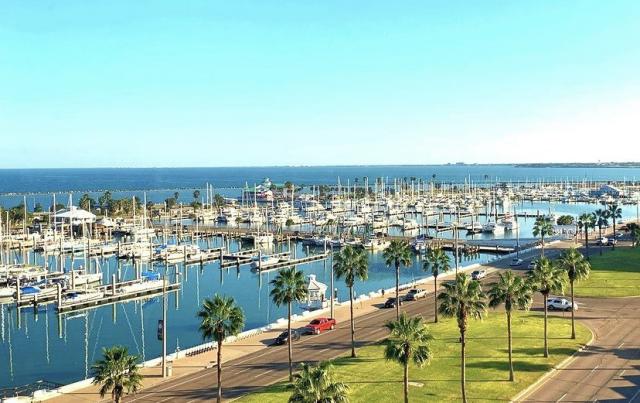Oyster enthusiasts flock to Corpus Christi restaurants in anticipation of ordering their favorite bivalve on a half shell, and oyster farming ensures that oysters are protected in a safe and sustainable manner.
Purpose of Oyster Farming
The aquaculture practice of oyster farming is a process in which oysters are bred and raised for their pearls, shells, and inner organ tissue, which is eaten. Traditional methods for farming oysters include the stake, hanging, longline, broadcast, and lattice-tray, but regardless of which one is used, oyster farming is extremely beneficial to the environment.
Oysters are filter feeders, which means they remove particles and nutrients from the water column through their natural feeding process, especially algae. This results in improved water quality and cleaner bay systems.
First Oyster Farm in Texas
Fun fact: The first Oyster Mariculture Permit ever issued in Texas belongs to Brad Lomax, the founder of the Water Street Restaurants. In 2020, he and his business partners created the 8-acre Texas Oyster Ranch in Copano Bay in Aransas County, which is also the first oyster farm in Texas. Lomax became inspired to help develop an oyster farm after watching an 8-minute documentary on oysters. Eventually after harvesting and selling the oysters, the oyster shells are recycled back into the bay, almost like a perfect closed-loop recycling program that ends up in dollars for the local businesses and a benefit for the environment.
Participating Restaurants
Restaurants also benefit from oyster farming and as the Texas Oyster Ranch gets used for production, more restaurants will benefit. The following restaurants participate in these conservation efforts:
- 309 N. Water St.
- (361) 881-9448
Water Street Oyster Bar is a family-owned restaurant located just blocks from Corpus Christi Bay and the first flagship restaurant located in the Water Street Market. Be sure to head to this downtown favorite if you’re looking for amazing seafood and fresh oysters!
- 13309 S. Padre Island Drive
- (361) 949-6744
Come join us for great weekday lunch and drink specials. As the sun sets, there is no better place to relax and enjoy dinner than on our deck under the J.F.K. overlooking the Intracoastal Waterway! We pride ourselves in having an extensive menu and full service bar. Our friendly…
- 815 Trout St.
- (361) 749-4088
Welcome to Virginia's on the Bay. Located on the waterfront in Port Aransas, Virginia's two story open-air restaurant will treat you to great food and service as well as panoramic views of the Port Aransas harbor, lighthouse, and ship channel. See dolphins playing and awesome…
- 13313 S. Padre Island Dr.
- (361) 949-8815
Open-air and right on the water with both indoor and outdoor seating options, Snoopy’s Pier is one of the only unobstructed views of the sunset over the water in all of Corpus Christi. Founded by long- time commercial fisherman Ernie Butler in 1980, the complex has grown into one…
- 13313 S Padre Island Dr
- (361) 904-5760
Savor over 15 varieties of oysters on the half-shell, flown in from all over the world at Snoopy’s Pearl Oyster Bar, located just off the JFK Causeway on the Intracoastal Waterway. The Pearl also offers a full menu that caters to every palate, ranging from steaks to a variety of…
Harte Research Institute
The Harte Research Institute for Gulf of Mexico Studies is also helping on the conservation front, with their creation of the “Sink Your Shucks” program in 2009. The program was the first in Texas to reclaim oyster shells from local restaurants and return to local waters. This provides the substrate to form new reefs and habitats for fish, crabs, and other organisms.
Once the shells are retrieved from restaurants by the Texas Surf Conservancy, they’re transported to the Port of Corpus Christi property to be quarantined. Then, the shells are moved from the stockpile location to various sites for restoration efforts conducted by the HRI. So far, this has resulted in the restoration of oyster reef habitat through the Mission – Aransas Estuary in Copano, Aransas, and St. Charles Bays.


















